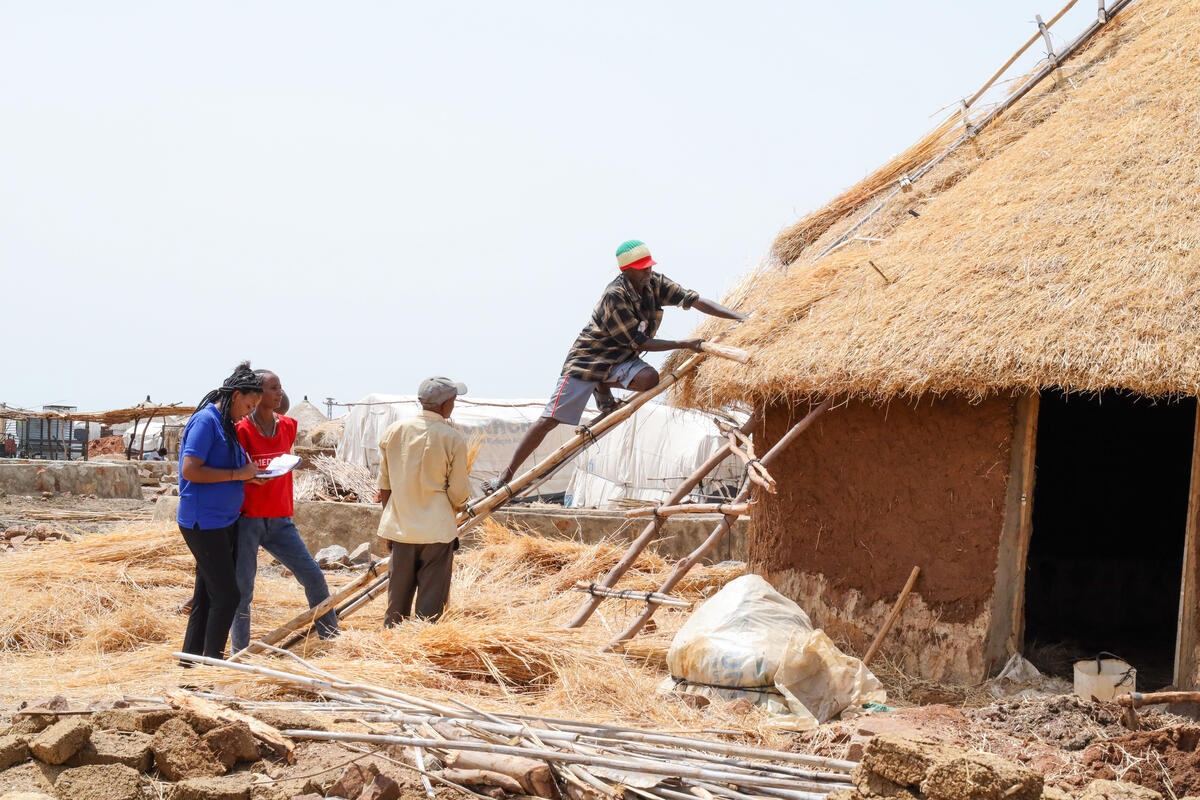Nigerian refugees struggle in aftermath of Boko Haram attacks
When Boko Haram militants stormed into her hometown, heavily pregnant Nigerian mother Mariam Adoum dropped everything and ran for her life.
Four days after she reached this desert town across the border in neighbouring Cameroon, she gave birth in a flimsy tent in a makeshift refugee camp, and wonders how she will care for the baby.
“It’s so difficult to have a child here. I’m scared,” she says. “We came with nothing. We need milk and proper shelter. My baby will grow up here. We don’t have a choice.”
Mariam is among 35,000 women, children and men who have fled a surge of attacks by Boko Haram in recent days in and around Rann, in Nigeria’s restive Borno State, many streaming into Goura in Cameroon’s Makary District.
When the gunfire broke out, elderly resident Fanne Gambo started to run, and did not look back as neighbours fell around her.
“We could hear gunshots behind us ... I saw corpses lying here and there, people being killed.”
“We could hear gunshots behind us,” she says shortly after arriving in this desert settlement. “I did not really see what was happening, I only saw corpses lying here and there, people being killed.”
Violence has been ongoing in northeast Nigeria since the Boko Haram insurgency erupted in 2009, forcing more than 2.5 million people from their homes within the Lake Chad Basin in a desperate search for safety.
As the insurgency grinds on, thousands have been displaced several times within Nigeria itself, while thousands of others like Blama Tchama, have sought safety over the border on numerous occasions.

“We have been to Cameroon seven times and each time, we are sent back to Nigeria. But this time around, we are here to stay … There is no security where we are coming from,” she laments.
Her most recent escape came after the Multinational Joint Task Force (MNJTF) which came to secure the city after an attack on January 14 withdrew, leaving residents to face militants, armed with rifles and rocket launchers.
“They tried to defend themselves on their own. But how could they, with their outdated bows and arrows against heavily armed fighters?” Blama asks.
The MNJTF, which includes forces from Cameroon, Chad, Nigeria, Niger and Benin, aims at countering Boko Haram and preventing other insurgent groups from gaining ground across the Lake Chad region.
“In this remote and desert environment, the needs are tremendously great in number."
The vast majority of the recent arrivals fled during a single weekend, 26-27 January, crossing the El-Beid River en masse, some with a few belongings packed on to donkey carts, others carrying them on their heads.
“In this remote and desert environment, the needs are tremendously great in number,” says Geert Van de Casteele, the assistant representative in Cameroon for UNHCR, the UN Refugee Agency, who travelled to Goura to meet new arrivals and assess their needs.
“It is about providing healthcare, food, water and medical assistance and to rapidly find resources with which to construct temporary shelter in a region characterised by particularly rough climate conditions,” he adds.
Together with the UN Development Programme and other partners, UNHCR has launched an appeal for US$135 million to help the hundreds of thousands of people displaced by the worsening Boko Haram insurgency in the Lake Chad Basin region.

Urgent action is needed in order to support the small West African nation, which already hosts 400,000 refugees, including some 135,000 Nigerians.
“People here make it clear to us they do not want to return to Rann, which has come under attack at least four times since September 2018,” Van de Casteele says. “They no longer feel safe, and it is on us today to offer them the protection they have a right to,” he adds. Last month, UNHCR expressed alarm at reports of the forced return by Cameroon of several thousands refugees into violence-affected Borno state.
Among those who fears she will never be safe in northern Nigeria is mother-of-four Amma Zarama Hamat, who lost her first-born son to Boko Haram violence two years ago, and has lived amid violence for the past eight years.
“They regularly come to take everything we have. They take our food, they take everything we own, and leave,” she says. “I can’t ever go back there. I barely escaped with my life. I lost my first-born son. Now I’m here and I can’t leave. I will die here in Cameroon.”
“I can’t ever go back there. I barely escaped with my life."
Gaelle Massack, UNHCR External Relations officer in Cameroon hopes and prays that the needs of all the refugees, in all sectors, will be met.
“After having witnessed so much suffering, and after seeing the hope that they’re desperately clinging onto, we’re only thinking of one thing: To see them stand on their own two feet again, And have a better life, than the one they left behind in Nigeria.”










